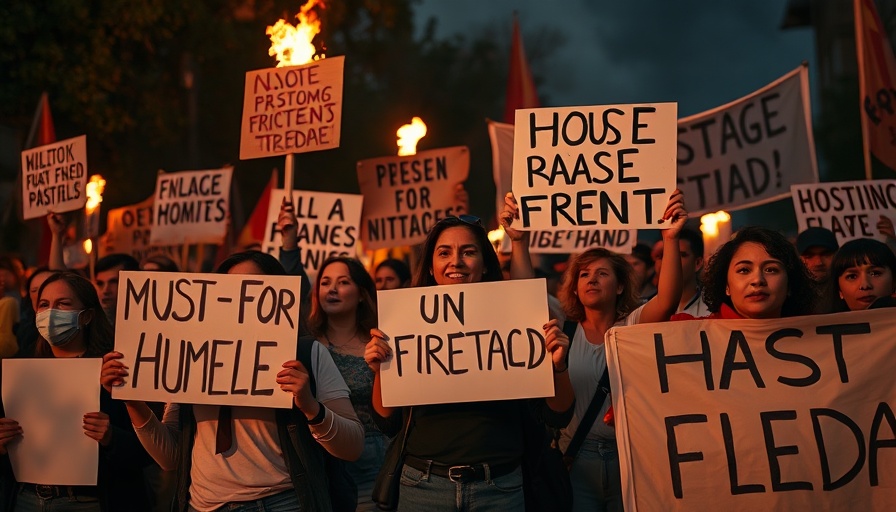
Trade War Fallout: Understanding the Market Impact
The announcement of sweeping tariffs by President Donald Trump has sent shockwaves through the American stock market, with futures plummeting dramatically. The Dow Jones Industrial Average recorded a staggering drop of 1,100 points, translating to a 2.7% fall, as investors reacted to the implications of what Trump termed 'Liberation Day' for American industry.
This backlash was not isolated; the broader markets suffered as S&P 500 futures fell 3.9% and Nasdaq-100 futures nosedived by 4.7%. Key players in the market, including beloved brands like Nike, Apple, and Amazon, saw their stocks dip by 7%, 7%, and more than 5% respectively. Companies that heavily rely on importing goods, such as Dollar Tree and Five Below, saw even steeper declines of 11% and 15% as uncertainty loomed.
Decoding Trump's Tariff Strategy
During a press event in the White House Rose Garden, Trump presented his rationale behind the tariffs, asserting that the U.S. would finally reclaim its economic independence. While he announced a minimum baseline tariff of 10% on all trading nations, additional restricted tariffs would target specific nations he accused of unfair trade practices, notably China and members of the European Union.
While supporters argue this move will bolster American manufacturing and reduce foreign dependency, many experts warn that such heavy-handed tariffs could escalate into full-blown trade wars, ultimately threatening the stability of the global market. As fears rise among investors, the outlook remains uncertain about whether these policies will indeed sharpen America's competitive edge or hinder its economic growth.
Global Implications: What Comes Next?
The financial community is abuzz with speculation regarding the long-term effects of these tariffs. Many analysts believe that if these trade tensions escalate, we could witness a ripple effect across the global economy, affecting international trade relations and ultimately the average consumer's pocketbook—with potential for price increases on everyday goods.
Lawyers, accountants, and medical professionals might find themselves navigating uncharted waters—not just in their sectors but as part of the larger economic framework. Understanding these tariff implications is crucial, as they could impact various contracts, pricing models, and overall business strategies.
Actionable Insights for Industry Professionals
In light of this significant economic shift, professionals in all sectors should closely monitor developments regarding trade policies. Businesses might consider revisiting supply chain strategies, exploring domestic sourcing options, or adjusting pricing to balance potential cost increases. Additionally, staying informed about legal and regulatory changes driven by these tariffs could be essential in maintaining compliance and competitive advantage.
 Add Row
Add Row  Add Element
Add Element 



Write A Comment